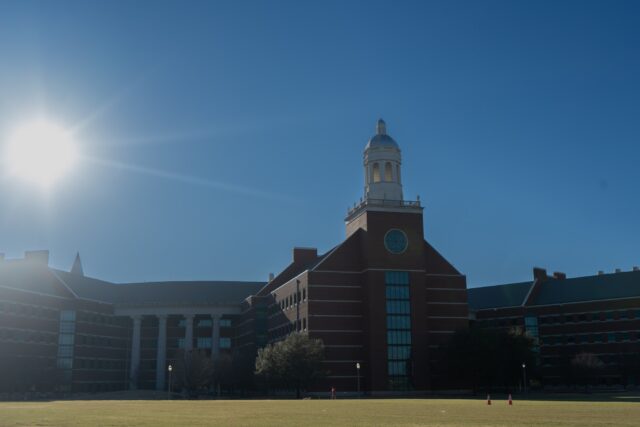By Elliott Nace | Staff Writer
The university’s status as a “very high research activity” R1 institution was retained following the release of the Carnegie Classification of Institutions of Higher Education’s report earlier this month. President Linda Livingstone wrote in her Feb. 13 Presidential Perspective that Baylor’s research investment soundly indicated the reaffirmation of the label, with figures far exceeding the base requirements.
The university, which first attained the R1 designation in 2021, continues to expand its research portfolio by hiring and endorsing faculty researchers who benefit from increased funding and the development of new research infrastructure.
Dr. Christoph Fischbacher, assistant professor of mathematics, noted that there is a level of academic diversity found across the university’s mathematics research.
“We have people working in analysis, some more on the differential operator side and also [some] colleagues working in mathematical physics,” he said. “Mathematical physics is an interesting field in the sense that the problems we’re looking at are more motivated coming from physics, and we try to get results answering questions arising from physics, but in a rigorous way.”
Dr. Jeremy Uecker, interim chair of sociology, who arrived at Baylor in 2012, explained how faculty additions have also contributed to the widening of departmental research.
“We currently have five professors in this department that are primarily sociologists of religion, which is pretty much unheard of anywhere else,” he said. “We’ve really focused on, in addition to religion, the sociology of health which was a big push from the university over the last decade.”
Fischbacher said that the R1 designation has helped contribute to research over his three years at the university.
“I did an unaccredited research project last summer, so that was made possible by funding through the Baylor math department,” he said. “I’m sure being R1 and trying to get good research results was a factor of that.”
According to Fischbacher, this prestige also appeals to prospective students.
“I think we have more and more high-quality research graduate students coming, so we started collaborating with those,” he said.
Uecker explained that the development of additional faculty resources over the past five years represented the university’s increased commitment to research.
“The Office of the Vice Provost of Research has really expanded,” he said. “There’s a lot more support for getting your research grant proposals together and for administering those grants after you’ve gotten them. That infrastructure has really developed in the last five years or so.”
Uecker said that in many ways, the university’s prior research suggested its worthiness of R1 status before receiving the official title. Projects such as the quadrennial Baylor Religion Survey, which he said contributed to several publications, were evidence of Baylor’s upward trajectory in the academic world.
“Even when I started here, the sociology department was an R1 department, even though the university hadn’t attained that level yet because they’ve always supported research initiatives,” Uecker said.



